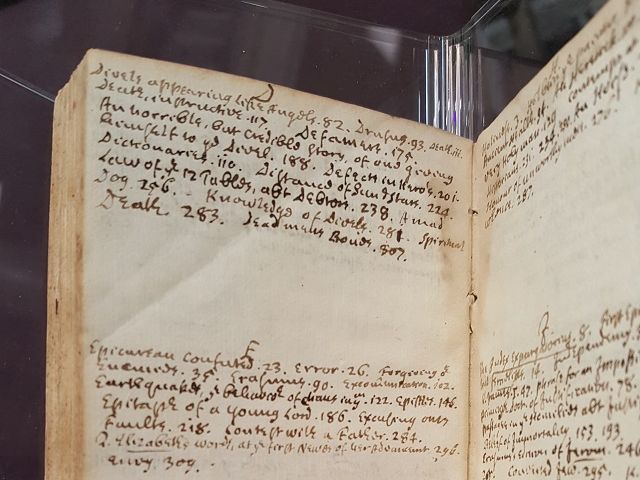Faculty of Arts - USA, Boston
| Datum: | 20 april 2020 |
| Auteur: | Theodore (Teddy) Delwiche |

It is my firm conviction that the best research trips are also the most humbling. One, of course, prepares an itinerary, a manageable list of certain manuscripts in far-away archives that seem, at least according to the uneven information provided on catalog records, to provide a path forward for new research. But inevitably, the illusion of order quickly dissipates upon entry into the archive, where a mare magnum of unexpected sources demands of the researcher that he confront just how much material has remained outside of his mental – and physical – grasp.
Indeed, my summer of archival research in Boston, generously funded by a GUF award, proved to be just such an experience. Within a period of a few months, I was able to appreciate just how much remains to be explored, to be discovered and digested in the form of scholarly examination. My topic, practices of student-notetaking in colonial New England, proved to be an incredibly fruitful one for archival investigation. Though narratives of colonial curricula present education as rote drudgery, with students the passive – and unwitting – recipients of esoterica, I argue that when we begin to examine the individual practices of student notetakers, we start to witness their creativity and agency in their education, that then as now, robust practices of extracurricular reading and learning permeated student life. A patient foray through the smudged pages of teenage students highlights more than one might expect. Beyond the practices of stated curricula, students loaned various books to one another and kept detailed tabs; they learned systems of shorthand notetaking to capture more fully the words of their ministers; they indexed and systematized those cryptic notes by subject, speaker, and date for subsequent use even into adult life; they indulged interests in Romantic poetry; they took notes on alchemy; they common-placed and kept quotations from authors far and wide.

My summer in the archives has jumpstarted what I hope to be a rich research master’s thesis that seeks to refocus the history of the book, of reading, and of education directly on student practices. By examining the print and manuscript culture of early New England education, we can both understand and appreciate the colonial college as a place of experimentation and knowledge creation, where students could individually develop and exercise complex methods of reading and notetaking. Far from just rote-memorizing, an education in the early colonial period, above all else, asked – nay - demanded of students that they become masters of the manuscript. This skill would come in incredibly handy in adult life when some of the most pressing political and religious controversies of the times were intentionally mediated not in print, but via the manuscript. Thus, the content of the colonial education might have faded in one’s memory over time, but the practice of notetaking remained stable and as important as ever into adult life.

In the coming months, I look forward to the opportunity to present the findings of my research at an international conference, as well as to prepare the finalized version of my research master’s thesis. I further hope that in the short term this research can be incorporated into an article or two on the topic, and, on the longer term, into an eventual doctoral dissertation that will examine the intellectual practices of early New England students more broadly. To put it simply: much work remains ahead of me. I am both grateful for and energized by the opportunity to spend the requisite time close to my sources. Perhaps fittingly, the GUF award for excellent master’s students has helped enable research on the practices and roles of students historically!

